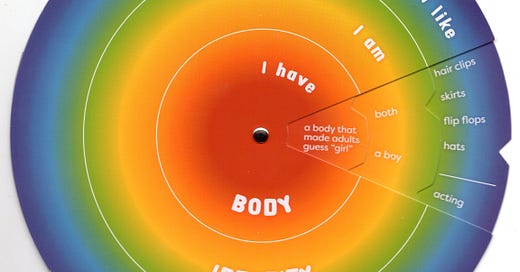Say "Don't Say Gay." Then Don't Ask Questions
Deceptive issue branding is gaslighting American liberals

Unless you’ve been living on a desert island with zero connection to the outside world, you’ve surely been hearing a lot about Florida’s recently passed “Parental Rights in Education” law. Although if you live in a Blue State bubble and choose your news sources accordingly, you know it as the “Don’t Say Gay” act instead: Left-liberal news sources consistently lead their coverage with this catchy, memorably alliterative phrase.
It’s safe to say that most people who get their news from such left-of-center sources (The New York Times, NPR, MSNBC, etc.) not only support LGBTQ rights, but assume that most conservatives oppose them. Consequently, it’s natural for anyone on that side of the political spectrum to presume that the phrase “Don’t Say Gay” encapsulates everything they need to know about the issues involved. It seems as simple as it is terrible: Anti-gay bigots want to suppress any acknowledgment of LGBTQ people and their history, rights, and inherent dignity from public school classrooms.
But in fact, it’s not that simple at all. Framing the Florida law as the “Don’t Say Gay” bill radically misrepresents the core issues involved. Most fundamentally, it implies that it’s a problem of conservatives trying to turn back the historical clock. For a left-liberal audience, it’s horrifying, but not surprising that right-wingers want to reverse hard-won victories for equal rights under law (such as, perhaps most notably in the popular imagination, the legalization of same-sex marriage). And for this constituency, sparking serious concern about and opposition to this agenda is easy.
But 21st-century society changes rapidly. And in reality, it’s not 2015 anymore. The most critical questions now are quite different. And everyone, regardless of their political priors, deserves a more honest, transparent, and thorough accounting of them.



